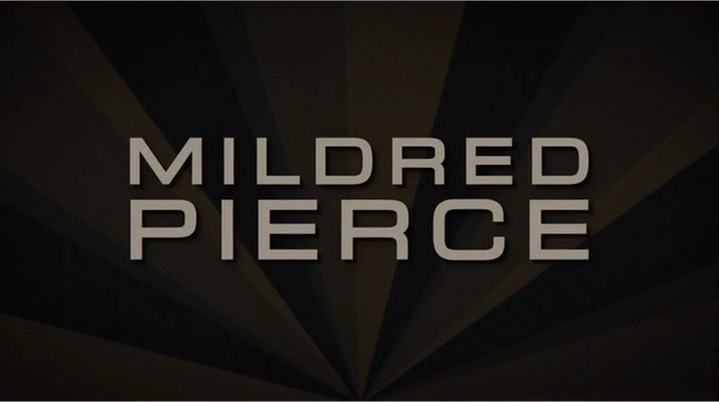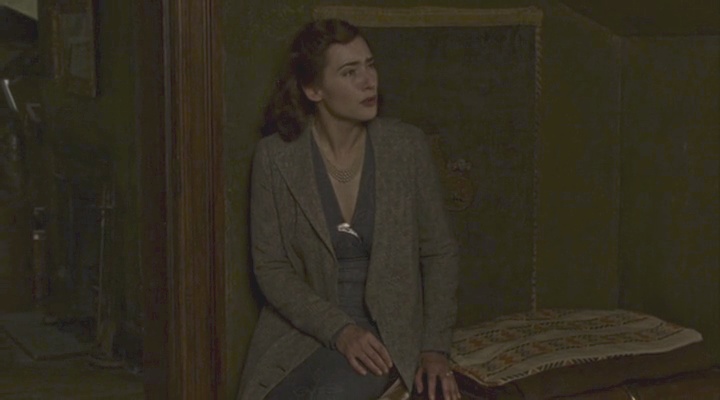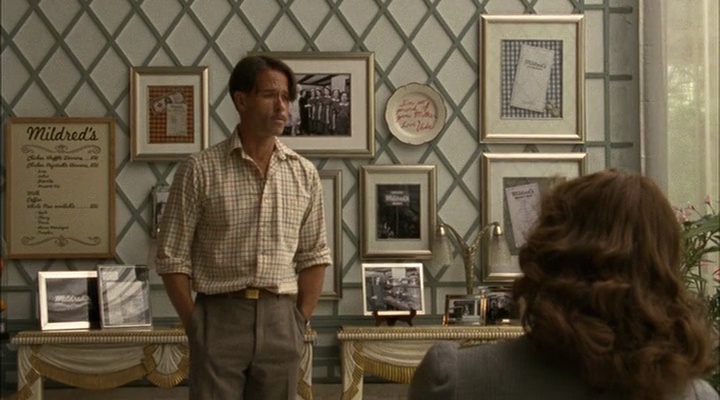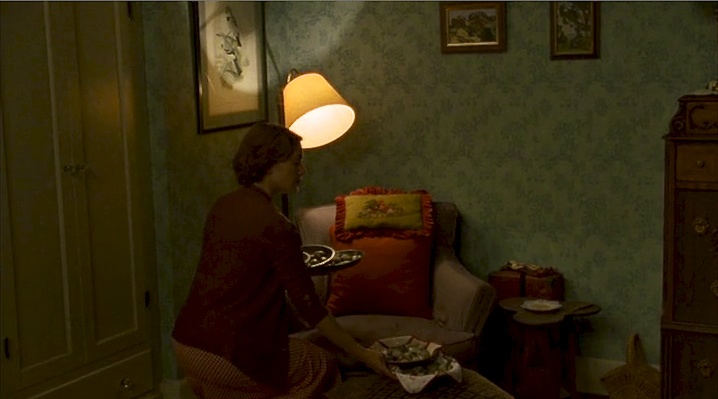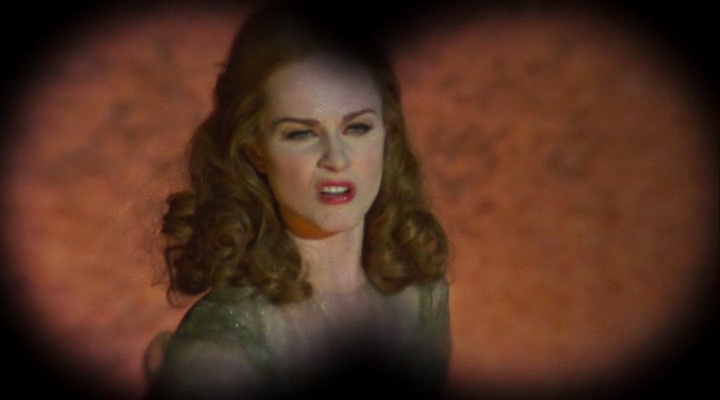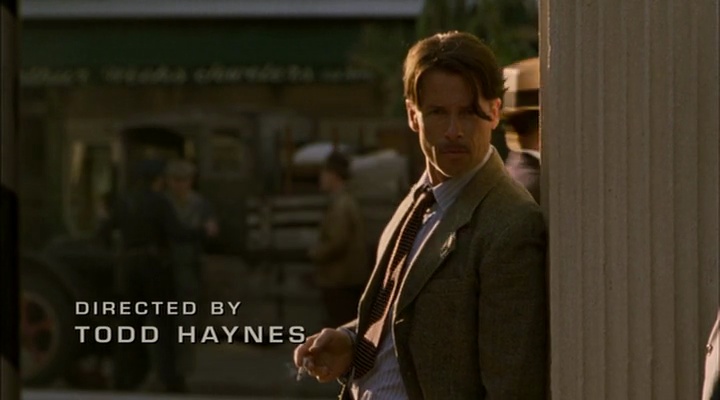 BUY FROM AMAZON: CLICK HERE!
BUY FROM AMAZON: CLICK HERE!
STUDIO: HBO Home Video
MSRP: $39.38
RATED: TV-MA
RUNNING TIME: 336 minutes
SPECIAL FEATURES:
- Inside Mildred Pierce
- HBO’s Inside the Episode
- Commentary with Todd Haynes and screenwriter Jon Raymond
The Pitch
An adaptation of the 1941 James M. Cain novel directed by Todd Haynes, who was tired of not bringing his knack for smart filmmaking to the work.
The Humans
Kate Winslet stars as Mildred, Evan Rachel Wood as her daughter Veda (episodes 4 & 5), and Guy Pierce as Mildred’s boy-toy Monty Beragon.
The Nutshell
Haynes and Winslet deliver a version of Pierce that is both a sprawling epic and a small, highly personal family drama. Had this been in theaters, it would have deserved but lost the Academy Award for Best Picture.
The Lowdown
Despite my previous statements, describing the legacy of Mildred Pierce in a nutshell is no easy task. Over 70 years since forcing her way into the American subconscious, Mildred has found herself in novels, an Academy Award winning movie starring Joan Crawford, and a song by Sonic Youth. As her friend and character Mrs. Gessler says, “[She’s] the great American institution that never gets mentioned on Fourth of July–a grass widow with two small children to support.” But she’s more than Mrs. Gesslar lets on. She’s a symbol for both the spoils of America and just how bad those spoils are. Director Todd Haynes remembers her, though; and during the five hour plus runtime of his fantastic HBO miniseries, he works tirelessly to pay his respect to the character. In turn, his version of Pierce plays a lot like Pierce the woman and works for its rewards. Haynes, who wrote the teleplay with Jon Raymond, works economically, squeezing in as much information as possible into each shot–he, for the most part succeeds,the film is essentially a line for line translation of the novel. Still, even at its most lavish, Mildred Pierce remains a film of style, substance, and taste, standing proudly in the novel’s legacy.
Mildred Pierce begins with a familiar scene. Bert, Mildred’s husband, contently mows the lawn, waters the plants, and tends to the garden on a sunny day in the Los Angeles suburb of Glendale. Meanwhile, Mildred frantically stirs away at a cake she’s baking in the kitchen. A serene example of suburban living, which quickly crumbles as Mildred reveals to Bert that she knows about his affair and throws him out of the house. Emotionally detached to the scene, Mildred appears cold in front of Bert. She does not love him. She doesn’t love anyone, except, of course, for the one person who hates her, Veda, her first daughter. So, with Bert gone, the question of money falls awkwardly into the Mildred Pierce’s proud lap. Left with few options, Mildred swallows what’s left of that pride, dawns the uniform, and begins waitressing. This sets Mildred on the path to wealth, her own restaurant, and, hopefully, her daughter’s love.
But Veda has other plans. Disgusted by her class and, more specifically, the plain, suburban town of Glendale, Veda wants a life of luxury that doesn’t come cheap. But Veda won’t work for it. She’s entitled to it, and when Mildred begins working towards it, her resentment grows stronger. As Mildred get closer to the life Veda wants, the more distant and malicious she becomes.
Haynes’ frames his film around this journey. Mildred works incessantly and practically for enough wealth to impress her daughter, getting men to work for her and her friends to help. As Mildred crawls her way up the restaurant industry ladder, Haynes shows her personal life fall to pieces. We only observe the cold Mildred Pierce, as Veda does, through doorways, windows, and in the reflection of mirrors. She’s kept at a distance from the viewer and Veda, separating her from her rewards, regardless of how self-sufficient she become. Her attempts to stay ahead of the game fail to outsmart her cunning daughter. Still, Winslet, and her superhuman charisma, draw us closer.
The difficulty of Mildred Pierce that both Haynes and star Kate Winslet must face is redundancy. Being a very literary and lengthy tale, we see Mildred take certain steps again and again. Her coveting of and rejection by Veda is a frequent consequence of her tireless hard work that Haynes highlights in almost every scene. Winslet makes this look easy, awarding Pierce with enough empathy to make her a sympathetic character while others would look illogical. Likewise, Haynes finds ways to subtly show Mildred’s practical qualities, whether she be practicing waitressing with a tray of stones or simply by the color of her dress, which almost seems to either oppose her background or the character she’s talking to. Together they carefully build up and breakdown the character.
They construct both tactics with care to provide the series with variety. Over the five or so hours, Mildred goes through a lot. So much so that often times single episodes will feel like several. Episode three, for instance, contains should stretch over several episodes, featuring the funeral of a major character, the opening night of Mildred’s first restaurant, the first of many clashes between Veda and Mildred, and a perfectly depressing and disappointing holiday season. In context, it’s a lot. But Winslet plays things so perfectly that even as characters around her change, her performance remains surprising and consistent, whether she loudly works on her financial endeavors or quietly schemes to win the affection of her terrible, terrible daughter.
Ultimately, Haynes makes a film that is strictly about the middle class and Mildred’s attempts to move upward to please her spoiled daughter living in the outskirts of Hollywood. Mildred is constantly at odds with her daughter’s dreams and desires, but ultimately, what Mildred wants is Veda, a desire that brings Mildred and Veda to the brink of madness.
Compelling, smart, and with production design straight out of Chinatown, Mildred Pierce succeeds in the highest order, being both entertaining and thoughtfully engaging. Haynes doesn’t just direct an adaptation nor a remake, he brings Mildred Pierce into our own era of financial collapse and class divides, relating and making his points distinctively and passionately.
The Package
The four disc package comes with both DVD and Blu-ray versions of the film. The Blu-ray looks and sounds fantastic, with the light greens and bright reds popping out of longtime Haynes collaborator Eric Lachman’s cinematography. Each episode also comes complete commentary by the director and screenwriter, as well as an inside look of each episode, where Haynes unloads his interpretation of the character in all his film nerd glory.
Those looking to write a term paper for their Depictions of Women on Film look no further: Mildred Pierce: The Collector’s Edition can act as your subject and at least two sources.
Rating: 




Out of a Possible 5 Stars
